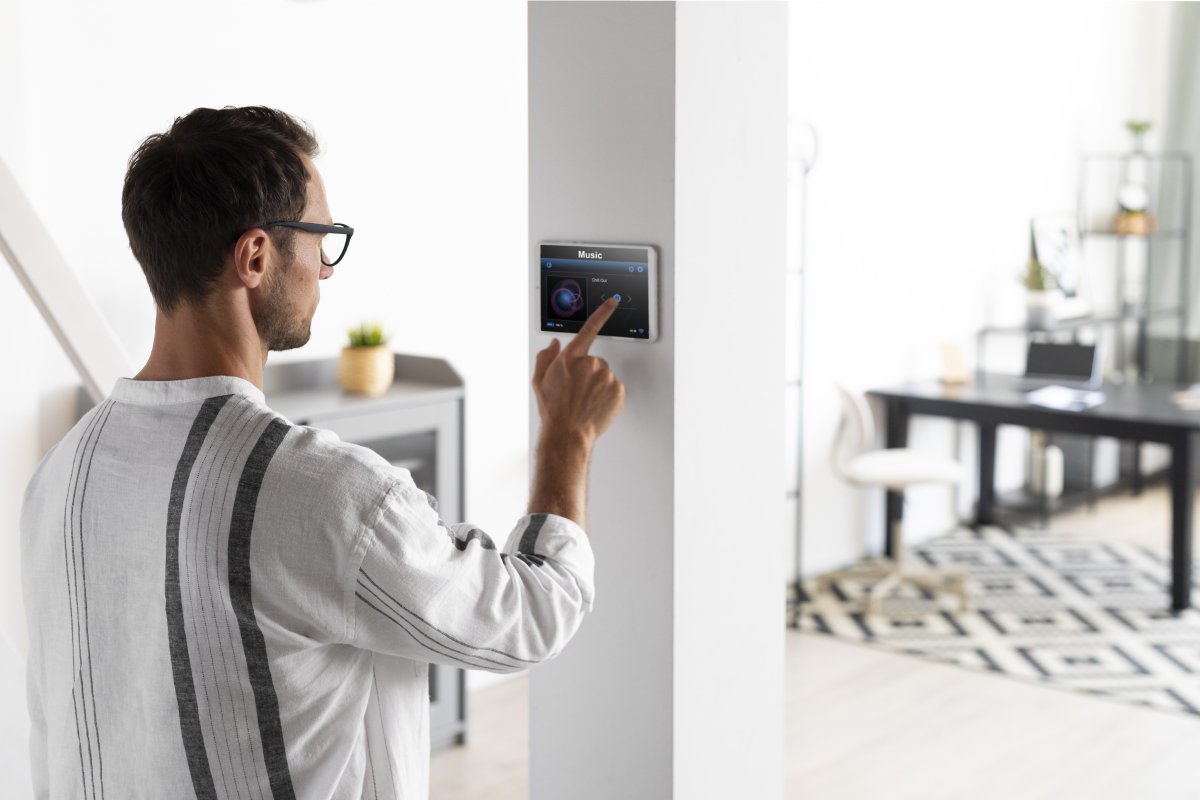Smart home technology has revolutionized the way homeowners control their living spaces, making daily tasks more convenient, energy-efficient, and secure. From voice-activated lighting and smart thermostats to home security systems and automated appliances, smart home installations are becoming a standard feature in modern homes.
However, integrating these advanced technologies requires more than just plugging in a device. Proper installation, wiring, and system integration demand the expertise of a professional electrician. This article explores the essential role of electricians in smart home installation, the benefits of hiring a professional, and key considerations for a seamless smart home setup.
What is a Smart Home?
A smart home is equipped with interconnected devices that communicate and automate various functions through a central system, such as Google Home, Amazon Alexa, or Apple HomeKit. These devices are controlled via smartphone apps, voice commands, or automated schedules, making homes more energy-efficient, secure, and comfortable.
Common Smart Home Devices:
- Smart Lighting (Philips Hue, Lutron, etc.)
- Smart Thermostats (Nest, Ecobee)
- Smart Security Cameras & Doorbells (Ring, Arlo)
- Automated Door Locks (August, Schlage)
- Smart Plugs and Outlets
- Home Automation Hubs (Amazon Echo, Google Nest Hub)
- Smart Appliances (Refrigerators, Ovens, Washing Machines)
- Smart Smoke & Carbon Monoxide Detectors
Each of these devices relies on a strong electrical infrastructure, seamless connectivity, and professional installation to function effectively.
The Role of Electricians in Smart Home Installation
Many homeowners assume that setting up smart home devices is as simple as connecting them to Wi-Fi. However, the real challenge lies in proper wiring, power management, system integration, and long-term reliability. This is where electricians play a crucial role.
1. Ensuring Proper Electrical Wiring & Power Supply
- Smart devices require consistent and reliable power to function correctly.
- Electricians upgrade or modify existing wiring to support new devices, ensuring they don’t overload circuits.
- Many smart home installations, like wired security systems or smart lighting, need direct electrical connections instead of just battery power.
2. Installing Smart Switches, Outlets, and Panels
- Smart switches and outlets allow homeowners to remotely control lights and appliances.
- Proper installation requires cutting power, rewiring circuits, and ensuring compatibility with smart home hubs.
- Electricians ensure smart outlets and switches meet safety codes and are grounded properly.
3. Setting Up Smart Lighting Systems
- Smart bulbs are easy to install, but entire smart lighting systems need professional wiring.
- Electricians integrate dimmers, motion sensors, and automated lighting schedules into the home’s electrical system.
- They can also install low-voltage LED strips or smart outdoor lighting for added convenience.
4. Integrating Smart Thermostats and HVAC Systems
- Devices like Nest or Ecobee thermostats require proper wiring to work with HVAC systems.
- Electricians ensure the wiring is compatible with heating and cooling units, preventing damage or malfunctions.
- A professional can also install additional sensors for zone-based temperature control.
5. Connecting Smart Security Systems
- Electricians help install wired security cameras, motion detectors, and alarm systems.
- Some security devices, like video doorbells and floodlight cameras, require a direct electrical connection.
- They also ensure backup power solutions, like battery backups, are in place for security devices.
6. Setting Up Whole-Home Automation Systems
- Many smart homes rely on a centralized automation hub to control multiple devices.
- Electricians ensure wired connections for stable performance, rather than relying solely on Wi-Fi.
- They set up custom automation scenes, such as:
- Lights turning on when a door unlocks
- Thermostat adjusting when no one is home
- Blinds closing automatically in the evening
7. Improving Smart Home Energy Efficiency
- Electricians recommend energy-efficient solutions to reduce power consumption.
- Installing smart meters and energy monitoring devices helps homeowners track and optimize electricity use.
- Upgrading to energy-efficient wiring and circuits ensures long-term savings.
8. Enhancing Smart Home Safety and Compliance
- Professional electricians ensure all smart home installations meet electrical codes.
- They prevent overloading circuits that could cause electrical fires.
- Proper grounding and surge protection protect smart devices from power surges and outages.
Benefits of Hiring a Professional Electrician for Smart Home Installation
While DIY smart home setups are popular, hiring a licensed electrician offers several key advantages:
1. Safety First
- Improper wiring can lead to electrical fires, power surges, or device malfunctions.
- Electricians ensure safe installation and compliance with local building codes.
2. Reliable & Seamless Integration
- Electricians help integrate multiple smart devices into one seamless system.
- They prevent connectivity issues, interference, or system malfunctions.
3. Custom Smart Home Solutions
- Professionals can create personalized automation setups tailored to your lifestyle.
- Example: « Good Morning » scene that gradually turns on lights, opens blinds, and starts coffee.
4. Energy Savings & Efficiency
- Electricians help optimize energy use, reducing electric bills over time.
- Proper installation prevents wasted energy from inefficient connections.
5. Long-Term Reliability & Support
- Unlike DIY setups, professional installations come with warranties and support.
- Electricians can troubleshoot future issues and provide maintenance services.
Key Considerations for Smart Home Installation
If you’re planning a smart home upgrade, here are some things to keep in mind:
Determine Your Needs – Decide which devices you want and how they should function together.
Ensure Strong Wi-Fi & Electrical Infrastructure – A weak network or outdated wiring can cause connectivity issues.
Plan for Future Expansions – If you plan to add more smart devices later, ensure your system is scalable.
Work with a Licensed Electrician – Avoid DIY risks by hiring a certified professional.
Invest in Surge Protection – Protect your devices from power fluctuations and electrical surges.
Final Thoughts: The Value of Professional Smart Home Installation
Smart home technology offers unmatched convenience, security, and energy efficiency, but a successful installation depends on a strong electrical foundation. Electricians play a crucial role in ensuring safety, integrating systems, and optimizing performance.
If you’re planning to upgrade to a smart home, hiring a professional electrician ensures everything is installed correctly, efficiently, and safely.
